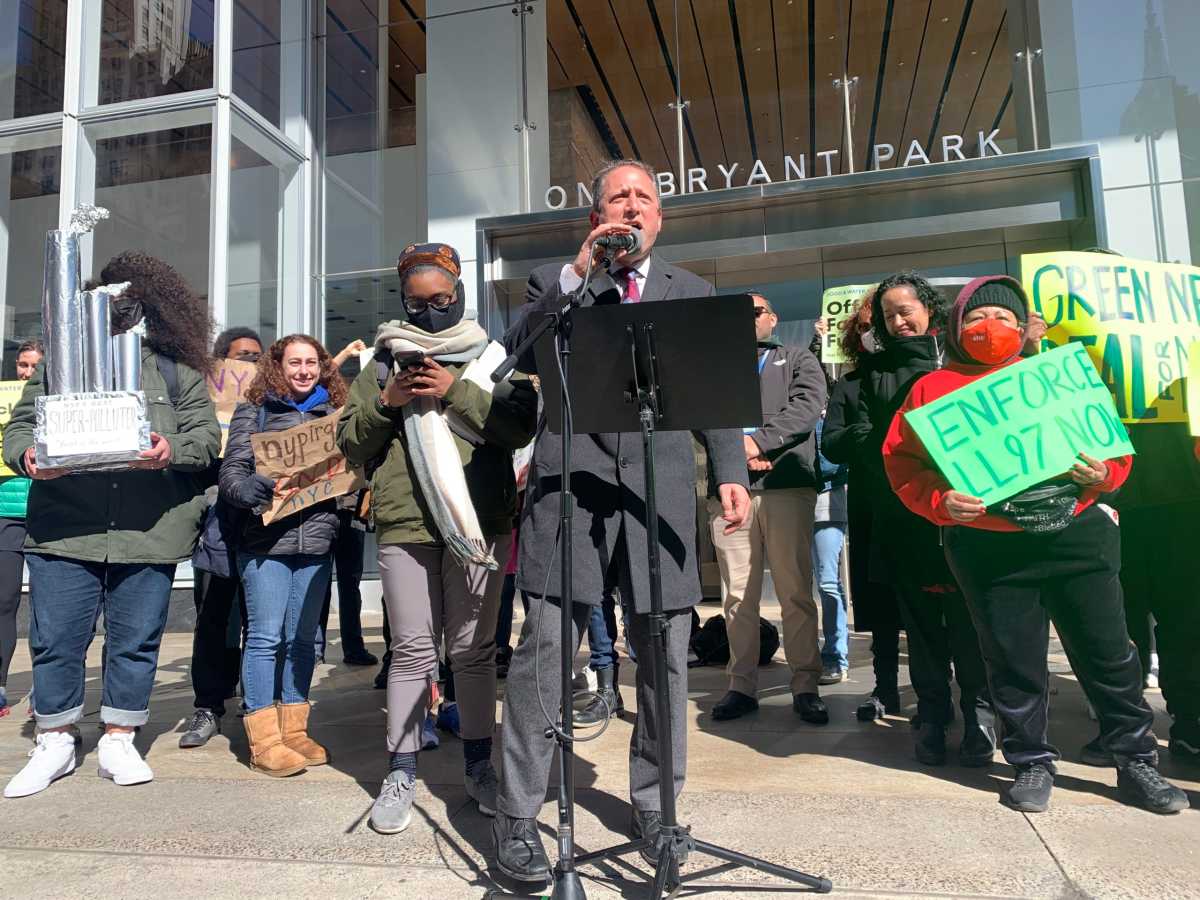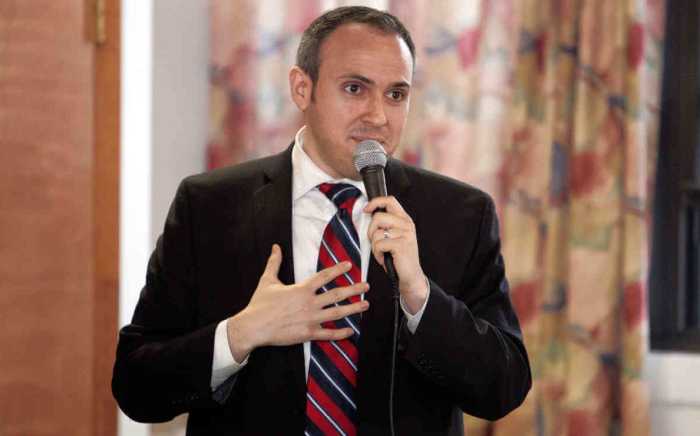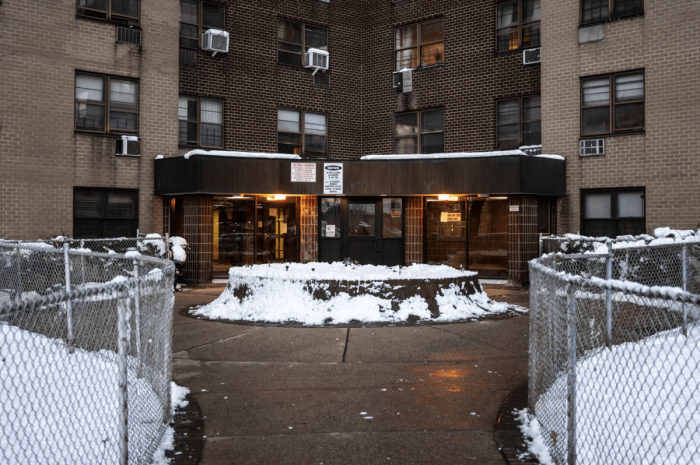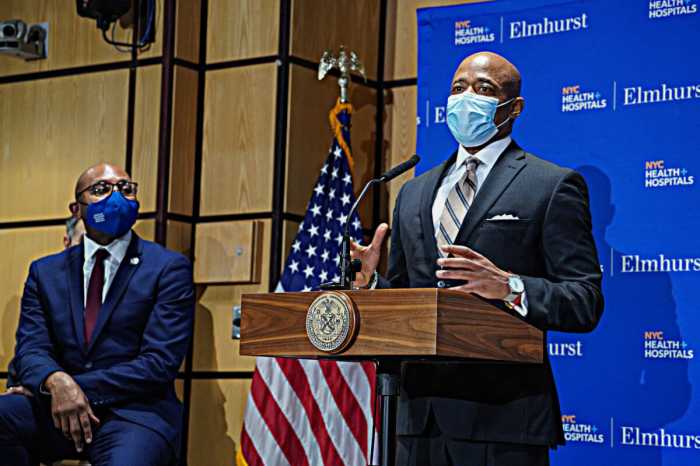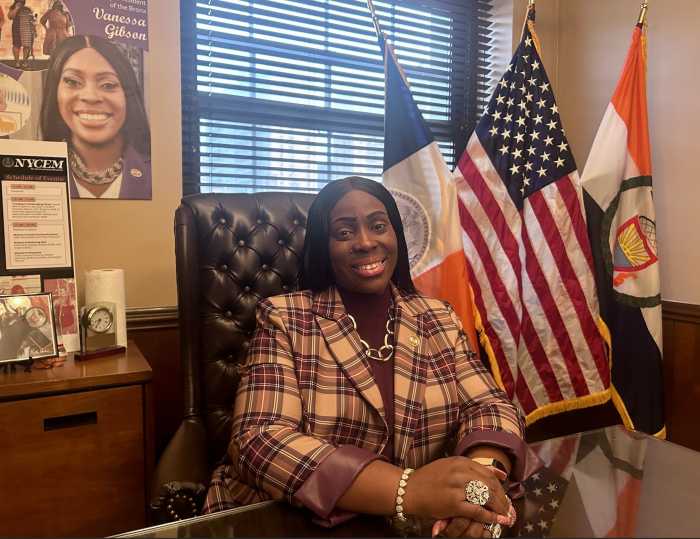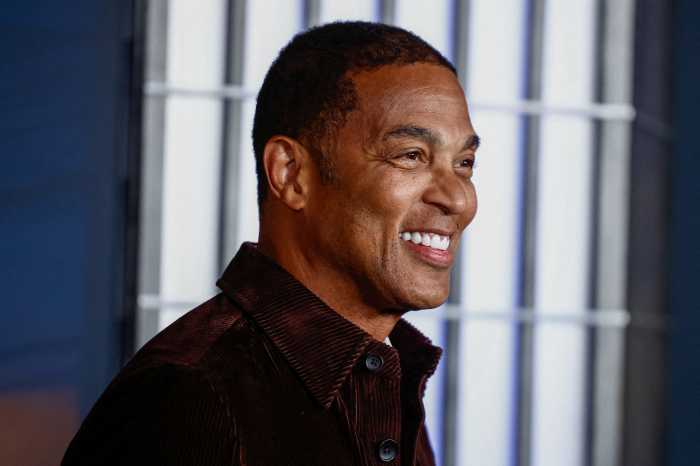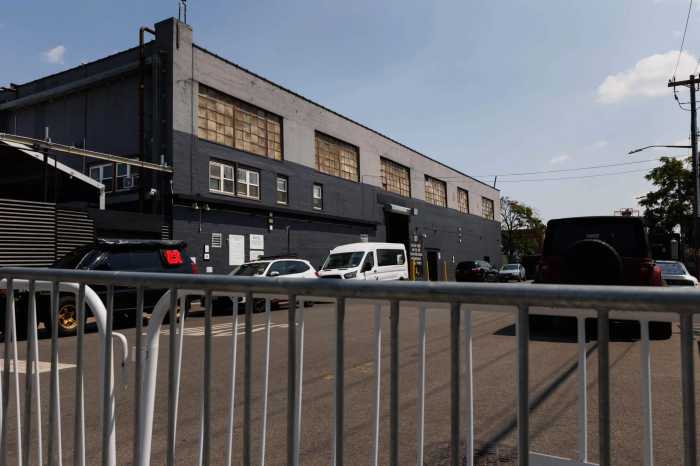City Comptroller Brad Lander joined a number of elected officials and environmental advocates Thursday to call on Mayor Eric Adams to fully fund and implement a city law mandating energy efficiency targets for large buildings.
The law was passed by the City Council in 2019 as part of then-Mayor Bill de Blasio’s Green New Deal. It requires the city’s largest buildings – over 25,000 square feet – to cut their greenhouse gas emissions 40 percent by 2024 and 80 percent by 2030. Building owners who don’t comply with the emissions requirements are supposed to face fines from the city.
The city must come up with these new rules and regulations by the end of this year.
The crowd gathered in front of 1 Bryant Park – Bank of America’s main midtown office building, which they referred to as a “super polluter” building. Lander pledged his office would strongly advocate for Local Law 97 and environmental justice overall.
“We must implement the law strongly (and) aggressively,” Lander said. We must “support implementation, have real oversight and fines or it will not be worth the paper it’s written on. So, I joined here this morning to say first we need the staff at the Department of Buildings to provide support to those owners who need to provide oversight and enforcement for those owners who dragged their feet.”
Lander was joined by Councilmembers Lincoln Restler (D – Brooklyn) and Alexa Avilés (D – Brooklyn) as well as Public Advocate Jumaane Williams. Activists including the New York Public Interest Research Group, Food & Water Watch and New York Communities for Change (NYCC) were also in attendance.
The Comptroller also called for the money raised from fining non-compliant building owners to be directed towards making New York City Housing Authority buildings compliant with Local Law 97 as well.
Lander said the Adams administration didn’t include funding for the building efficiency law in his preliminary budget for fiscal year 2023 that was unveiled last month. He added that he called on the mayor in the City Council’s first preliminary budget hearing yesterday to fully fund the legislation.
Additionally, the advocates accused Adams’ administration of spreading misinformation about the law by repeating real estate industry talking points that it’s “unfair.”
In a statement, an Adams spokesperson said the mayor supports the goals of Local Law 97 and encourages building owners to use the NYC Accelerator, which advises building owners on how to secure funding for energy efficiency upgrades.
“The Mayor acknowledges that in order to reach our environmental goals, the City needs to help ensure that retrofits and upgrades are easy and affordable,” the spokesperson said. “Fines don’t serve the goal of GHG reductions, but retrofits and upgrades create jobs. That is why he has supported City subsidies to assist property owners in need with the cost of retrofitting and called for significant investment in retrofitting the City’s own buildings as part of a broader strategy to ensure NYC is a national leader in reducing carbon emissions and in creating a green economy.”
At around the same time as the rally, Adams announced the city’s plan to convert the South Brooklyn Marine Terminal into an operations and maintenance center for wind turbines off the coast of Long Island. Williams said expanding wind energy is a valuable step forward for the city, but called on the Adams administration to do more.
“It’s right to applaud the mayor for that, that is excellent,” Williams said. “What we want to see is consistency in the administration on climate justice. And what we’ve heard so far, at best, is mixed messages when it comes to Local Law 97. What we want to hear is a clear message from the mayor and the administration that Local Law 97 will be fully implemented, fully enforced and fully funded.”
Former Queens Councilman Costa Constantinides, the law’s original author, told PoliticsNY the council had allocated money in years past to assist owners in retrofitting their buildings to meet the efficiency requirements. And the administration will have to line up that funding over the next couple of years to make the bill effective, he added.
“We can’t let this die on the vine,” Constantinides said. “This is the largest emissions reduction law, not just in this city, but in any city in the world. This was always written as a way to be aggressive and just wanting to see this happen because we need it to happen.”


